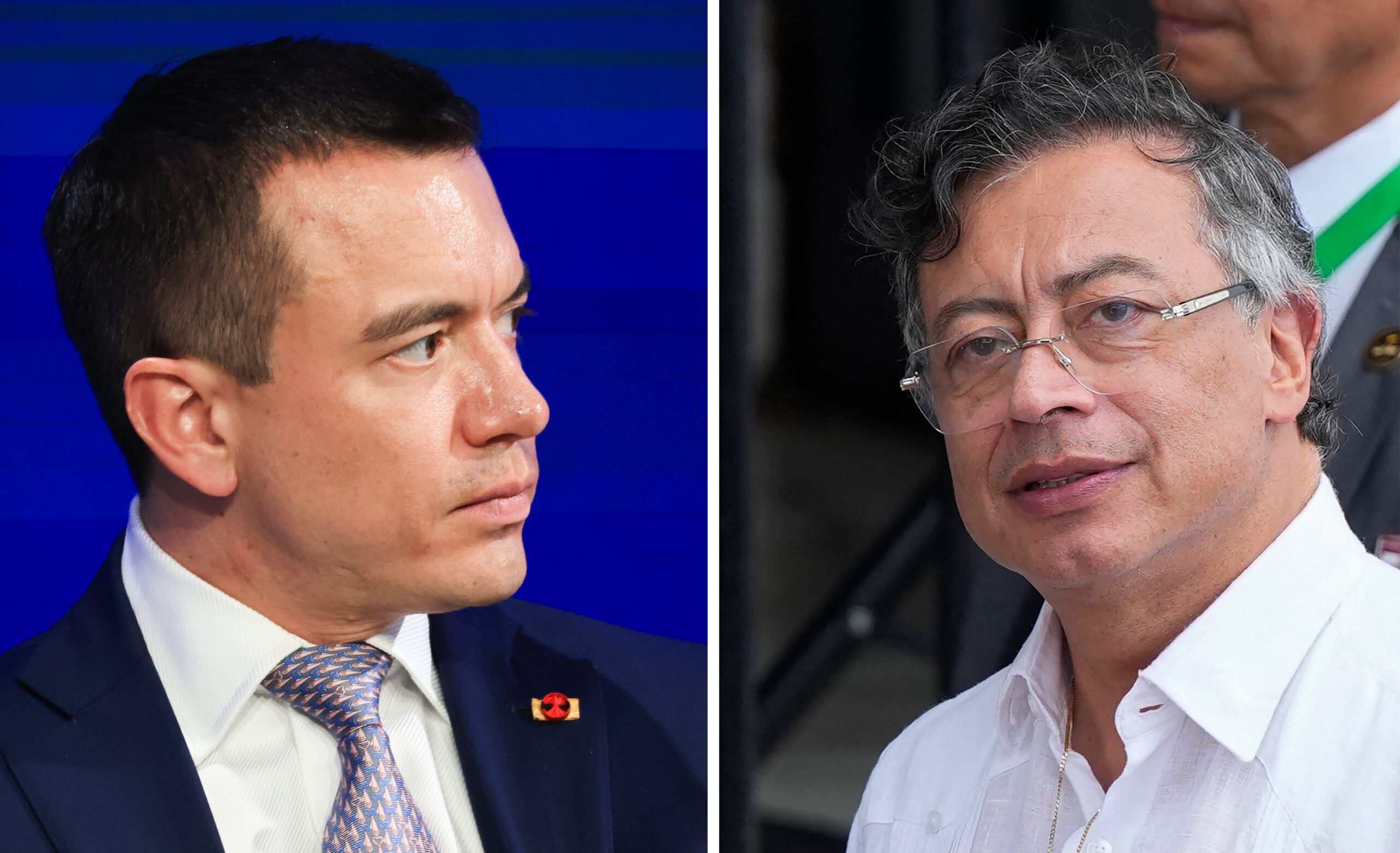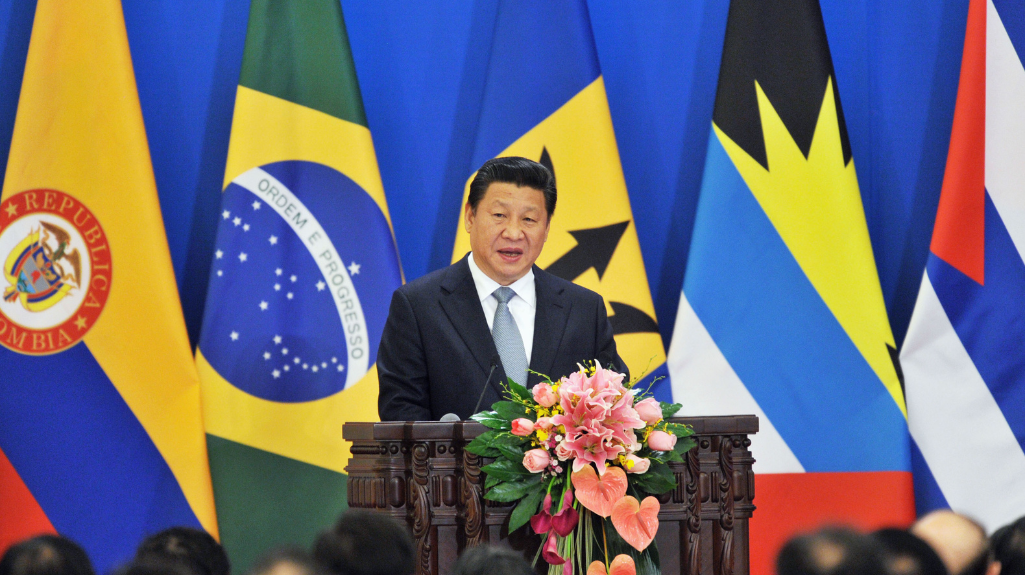Arab Countries Pursue Latin American Trade
Arab Countries Pursue Latin American Trade
The United Arab Emirates and other members of the Gulf Cooperation Council are expanding trade ties to Argentina, Brazil, and Peru.
As a region that imports most of its food, some Arab countries in the Middle East increasingly look to Latin America as a strategic source of agricultural products. As part of growing ties between the two areas, Peru hosted the Third Summit of Heads of State and Government of South American and Arab Countries, (ASPA) on October 1 and 2. Conceived by former Brazilian President Luiz Inácio Lula da Silva, the first meeting took place in 2005 and serves as a testament of the rising trade between Latin America and the Middle East. Annual commerce between the two regions now accounts for around $30 billion and continues to rise. Arab countries aim to increase trade by exploring the possibility of free-trade agreements, expanding airline services, and increasing foreign direct investment with Peru, Brazil, and Argentina, major sources of meat, sugar, and minerals.
Along with the ASPA summit, Arab leaders courted Latin American leaders last month on the sidelines of the UN General Assembly. On September 29, foreign ministers from the Gulf Cooperation Council (GCC)—made up of Bahrain, Kuwait, Oman, Qatar, Saudi Arabia and the United Arab Emirates (UAE)—met with their counterparts from the Community of Latin American and Caribbean States (CELAC) in the first meeting of its kind to discuss trade and investment. Along with increasing commerce, the GCC aims to promote technology exchange, particularly in the area of agriculture. Commenting on the increasingly important relationship, Colombian Ambassador to the UAE Roberto Vélez told Abu Dhabi’s The National: "I think the Arab world has awakened to the Latin American world in the last five years. You have Europe in a very delicate situation economically, and the United States' economy is not doing great either. We truly believe that these next 10 years will belong to Latin America."
Here are some of the countries expanding trade ties with the Middle East:
- Summit host Peru is a key trade partner for the Middle East, particularly the UAE. The Andean country exports minerals, agricultural products, and home décor such as textiles and ceramics to the UAE, sending $6.9 million worth of goods to the Gulf country last year. Furthermore, in 2011 UAE exports to Peru rose 30 percent to $8.2 million.
On October 2, Peru signed a cooperation agreement to increase investment, trade, and technology exchanges with the GCC. The pact is a step toward a bilateral free-trade agreement, something GCC countries have expressed an interest in. The agreement follows the inauguration of Peruvian embassies in Qatar and Kuwait last year, and the opening of the first Peruvian embassy in Saudi Arabia in July. Emirates Airlines is also considering flights between Dubai and Lima, which would greatly facilitate travel between the two countries. José Beraún Araníbar, Peru’s vice minister of foreign affairs, visited the Arabian Gulf three months ago and said: "The regions have a duty by the circumstances to look for new partners, aside from the areas we are historically linked, either because of the crisis elsewhere or because there are more possibilities with doing business with other regions."
- Brazil also has increasing ties to Arab countries. It is one of the largest providers of meat to the Middle East, which also imports more Brazilian poultry than any other region. Sugar, meat, and ores ranked as the top Brazilian exports to the Middle East. In 2011, trade between Brazil and the GCC grew by 31 percent, reaching $12.43 billion. This year, Brazil’s top export Arab markets were Saudi Arabia, the UAE, and Egypt, primarily in food and agricultural products, while food exports to Lebanon rose by nearly 8 percent last year to $207.33 million. It’s not just meat, though: a Brazilian company will begin exporting popsicles to Dubai next year.
In addition, several airlines opened new routes to Brazil, including Emirates Airlines flights to São Paulo and Rio and Qatar Airlines flights to São Paulo. Etihad Airways begins flying to Brazil’s biggest city next year. In April, representatives from Itaú, one of Brazil’s largest banks, and former Brazilian President Fernando Henrique Cardoso traveled to Qatar and the UAE to encourage investment in the South American country.
- Trade between Argentina and the Middle East also grew, reaching $300 million in 2011. Over the past two years, direct investment from Arab countries in Argentina reached $500 million. This week, Argentina sent a delegation to the UAE in a bid to increase poultry, meat, and fish exports, following the Argentine Minister of Agriculture’s visit to that country in May. In January, Emirates Airlines began flights between Dubai and Buenos Aires. Lebanese President Michel Sleiman visited Argentina this week following the Peru summit, signing various cooperation agreements to deepen trade, tourism, and education ties.
In other related economic and trade news:
- The Economic Commission for Latin America (ECLAC) released its Economic Survey of Latin America and the Caribbean 2012 report on October 2, indicating the region’s GDP will grow by 3.2 percent this year—a lower than expected rate due to the eurozone crisis and weak U.S. economy. The report also projects growth rates of 4 percent for Mexico and only 1.6 percent for Brazil.
- Despite slower growth rates in Latin America, unemployment reached all-time lows, says a new World Bank report. Unemployment rates in the region decreased to 6.5 percent last year—nearly halved since 2002—while 35 million jobs were created in the 2000s.
- China’s Minister of Commerce Chen Deming traveled to Colombia with a government delegation this week to talk trade and begin discussions on a possible bilateral free trade agreement. During the visit, Chinese and Colombian officials also signed a bilateral agreement on economic and technological cooperation.
- South Africa accused Brazil—the world’s largest poultry exporter—of dumping chickens at “unfairly low” prices and has taken the case to the World Trade Organization. The trade dispute could hurt growing ties between the two countries, reports the BBC.








